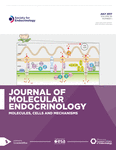Berberine reduced blood pressure and improved vasodilation in diabetic rats
- Yu-Guang Ma,
- Liang Liang,
- Yin-Bin Zhang,
- Bao-Feng Wang,
- Yun-Gang Bai,
- Zhi-Jun Dai,
- Man-jiang Xie⇑ and
- Zhong-Wei Wang
- Y Ma, Department of Oncology, The Second Affiliated Hospital of Medical College, Xi'an, China
- L Liang, Department of Oncology, The Second Affiliated Hospital of Medical College, Xi'an, China
- Y Zhang, Department of Oncology, The Second Affiliated Hospital of Medical College, Xi'an, China
- B Wang, Department of Oncology, The Second Affiliated Hospital of Medical College, Xi'an, China
- Y Bai, Department of Oncology, The Second Affiliated Hospital of Medical College, Xi'an, China
- Z Dai, Department of Oncology, The Second Affiliated Hospital of Medical College, Xi'an, China
- M Xie, Department of Aerospace Physiology, Fourth Military Medical University, xian, China
- Z Wang, Department of Oncology, The Second Affiliated Hospital of Medical College, Xi'an, China
- Correspondence: Man-jiang Xie, Email: manjiangxie{at}hotmail.com
Abstract
Hyperglycemia and hypertension are considered to be the two leading risk factors for vascular disease in diabetic patients. However, few pharmacologic agents could provide a combinational therapy for controlling hyperglycemia and hypertension at the same time in diabetes. We aimed to investigate whether berberine treatment could directly reduce blood pressure in diabetes and what is the molecular mechanism underlying the vascular protection of berberine in diabetic rats. Berberine (50, 100, and 200 mg/kg/day) was intragastrically administered to diabetic rats for 8 weeks since the injection of streptozotocin. The endothelium-dependent/-independent relaxation in middle cerebral arteries was investigated. The activity of large-conductance Ca2+-activated K+ channel (BKCa) was investigated by recording whole-cell currents, analyzing single-channel activities, and assessing the expressions of α- and β1-subunit at protein or mRNA levels. Chronic administration of 100 mg/kg/day berberine not only lowered blood glucose, but also reduced blood pressure and improved vasodilation in diabetic rats. Furthermore, berberine markedly increased the function and expression of BKCa β1-subunit in cerebral vascular smooth muscle cells (VSMCs) isolated from diabetic rats or when exposed to hyperglycemia condition. The present study provided initial evidence that berberine reduced blood pressure and improved vasodilation in diabetic rats by activation of BKCa channel in VSMCs, which suggested that berberine might provide a combinational therapy for controlling hyperglycemia and blood pressure in diabetes. Furthermore, our work indicated that activation of BKCa channel might be the underlying mechanism responsible for the vascular protection of berberine in diabetes.
- Received 14 January 2017
- Revision received 3 May 2017
- Accepted 12 May 2017
- Accepted Preprint first posted online on 17 May 2017











